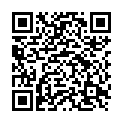|
|
|
| Module code: BAKM-039 |
|
|
2S (2 hours per week) |
|
3 |
| Semester: 1 |
| Mandatory course: yes |
Language of instruction:
German |
Assessment:
Written composition or written examination, type and duration of the examination for the selected topic are specified in the module handbook.
[updated 19.11.2019]
|
Exam recurrence:
The information regarding exam recurrence is found within the exam policy of the study programme (ASPO).
|
BAKM-039 (P430-0024) Cultural Management, Propädeutikum, ASPO 01.10.2020
, semester 1, mandatory course
|
30 class hours (= 22.5 clock hours) over a 15-week period.
The total student study time is 90 hours (equivalent to 3 ECTS credits).
There are therefore 67.5 hours available for class preparation and follow-up work and exam preparation.
|
Recommended prerequisites (modules):
None.
|
Recommended as prerequisite for:
|
Module coordinator:
Prof. Dr. phil. Christian Bauer |
Lecturer:
Prof. Dr. phil. Christian Bauer
Dozierende des Studiengangs
[updated 06.11.2019]
|
Learning outcomes:
After successfully completing this module, students will:
_ be able to understand the most important processes in the history of philosophical aesthetics from the Enlightenment to the present through their own research, be able to present them in a comprehensible way and identify the epistemological principles of each respective era.
_ be able to explain the foundations of philosophical aesthetics with regard to artistic, creative and cultural processes as instruments of practical and personal experience.
_ be able to identify the social and discursive significance of cultural and media change processes and discuss them in their analysis.
_ be able to develop action-oriented perspectives for cultural developments on the basis of scientific research and the results of normative discussions.
[updated 19.11.2019]
|
Module content:
_ The history of philosophical aesthetics from the Enlightenment to the present
_ A fundamental historical overview of issues regarding philosophical information theory and its reception
_ Philosophical dimensions and categories of visual arts and design
_ Models of aesthetic experience with regard to works of and processes from the fields of visual arts, design and new media
_ Importance of the media as a space for remembering and discussing social discourses
[updated 19.11.2019]
|
Teaching methods/Media:
Seminar
[updated 19.11.2019]
|
Recommended or required reading:
_ Zygmunt Baumann: Flüchtige Moderne, Frankfurt/Main 2003
_ Martin Burckhardt: Metamorphosen von Raum und Zeit. Eine Geschichte der Wahrnehmung, Frankfurt/Main, New York 1997
_ Jonathan Crary: Aufmerksamkeit. Wahrnehmung und moderne Kultur, Frankfurt/Main 2002
_ Umberto Eco (Hrsg.): Die Geschichte der Schönheit, München, Wien 2004
_ Umberto Eco (Hrsg.): Die Geschichte der Hässlichkeit, München 2007
_ Werner Jung: Von der Mimesis zur Simulation. Eine Einführung in die Geschichte der Ästhetik, Hamburg 1995
[updated 19.11.2019]
|


